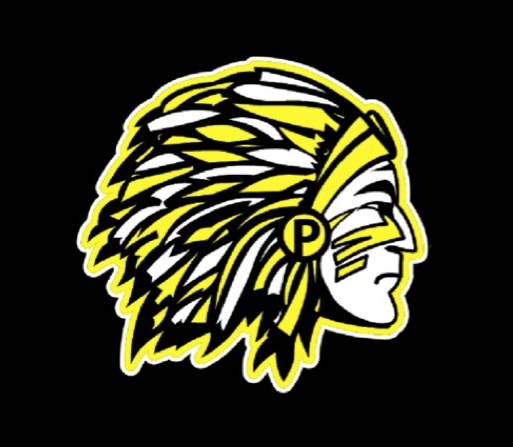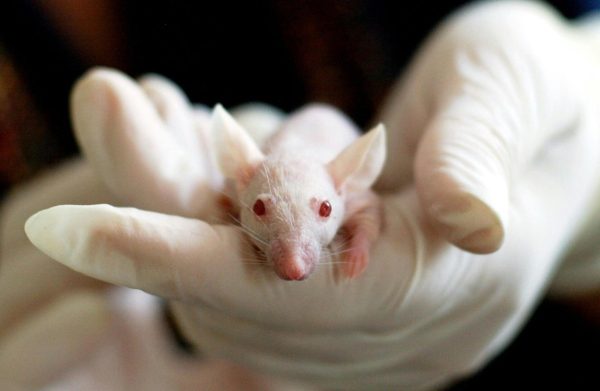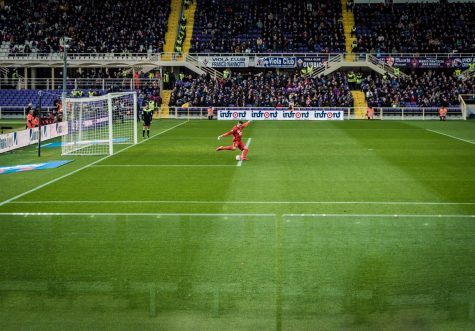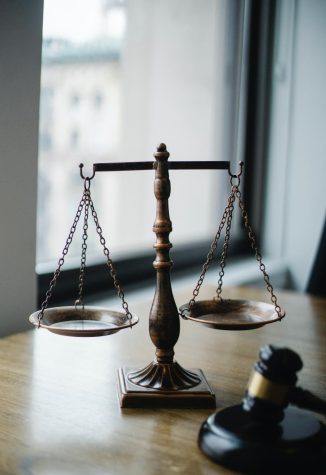Is It Time To Retire the Chief?
The PHS Ethicist examines if the high school should still be using Native American iconography in 2022
Dear Piscataway High School Ethicist,
I am a concerned student who would like your input on our school’s use of controversial Native American iconography.
I’ve always taken pride in our school. In a country where inclusivity is in constant debate, our school works hard to include students of all gender, race, and sexuality. We have Pride flags adorning our classrooms, hallways entitled “Respect”, Schoology posts discussing prejudice and representation. Yet, I feel that our actions do not match up with our words. How sincere are these steps ‘forward’ when our school mascot continues to consist of a racist caricature?
Although we have been taught repeatedly that the era of colonialism has ended and that, as a society, we have put such hate behind us, disturbing vestiges of colonialism and imperialism remain right here at home. I cannot help but feel a sense of shame. Our peer schools have replaced their outdated mascots while we continue to boast a mascot that degrades a culture and makes use of an age-old stereotype: a vaguely indigenous man, his presence perhaps a reference to the Native-sounding name of our district, his anger made into something as trivial and culturally insensitive as a school chant. In the year of 2022, why?
Very truly yours,
Concerned Student
Dear Concerned Student,
In continuing with the usage of the Native American mascot, PHS would appear to promote cultural appropriation of indigenous peoples for its own amusement. This is unethical and must stop.
First, this practice continues the oppression of the non-dominant culture by the dominant culture. Through colonization, Native Americans lost their land and their way of life. When the dominant group continues to steal aspects of the non-dominant culture, that continues the economic oppression and disadvantage of the non-dominant culture. For example, in Australia, there are cases where white Australian businesses stole Aboriginal and Torres Strait Islander artworks for use on T-shirts and souvenirs. This allows the dominant culture to appropriate and make money from the non-dominant culture without benefiting the original artists. When we print the Native American headdress and the word, “Chiefs” on our merchandise, we are reinforcing the cultural imbalance that has existed in our Nation for over 500 years for our own benefit.
Second, cultural appropriation often adds to stereotypes imposed upon members of the non-dominant culture. The Native American chief, the Japanese geisha or the Arab sheikh can be examples of stereotypes that pop up during Halloween. When people from dominant cultures ‘dress up’ like this, it reduces something of cultural significance to a costume just to enable the dominant group to ‘have a bit of fun’. But this just reinforces the stereotype. And stereotypes reinforce oppression by serving as a reminder of who really holds the power.
Some might argue that we honor Native Americans by using this mascot. Limiting Native Americans to a stereotype of a chief wearing a headdress, however, is an insulting reduction of Native American culture. Bryan Brayboy, a professor at Arizona State University, explains that such Native American mascot images impact “non-native kids, [by] largely lur[ing] them toward racism toward native people. It ends up giving them the sense that native folks and peoples are a thing of the past or are to be caricatured, so they are less likely to have empathy with native peoples, and they come to see us as these relics of the past and stereotypes rather than vibrant, viable, productive human beings.”
The rest of the world is moving beyond the age of insulting mascots. The football team once known as the Washington “Redskins” has changed its name to the Washington Commanders. Land O’ Lakes, a farmer-owned cooperative, has replaced the image of a Native American woman on its butter. Aunt Jemima Syrup, once branded with an image of a mammy-esque Black woman and a demeaning name, has changed its label to Pearl Milling Company to be appealing to all consumers.
PHS has no ethical choice but to replace its mascot because it has an obligation to protect its student body by truly promoting and modeling inclusion and diversity. PHS must make all of its students feel accepted and safe.
The PHS Ethicist
The Piscataway High School Ethicist is a column run by the PHS Ethical Debate Team. We seek to respond to your ethical quandaries, dilemmas, issues, and queries. You can send your questions to [email protected]. We look forward to being your guide on ethical conundrums big and small.





